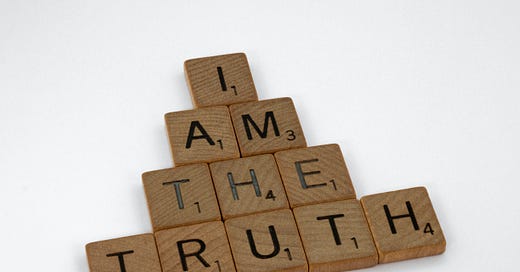Time and again have we been proven wrong about what we earlier were so certain of. The recognition that there are no reliable means of justifying ideas as being true or probable is called fallibilism. Even if we might stumble upon the truth, we will never know for sure that we did. The philosopher Xenophanes already concluded this 2500 years ago by stating that we may search for the truth but may not know when we have found it. We already concluded that both rationalism and empiricism, our two primary methods of acquiring knowledge, are liable to error. Deduced conclusions are only certain when the premises themselves are certain, but we already discussed that these at one point need to be either axioms or need to rely of observations. We cannot prove axioms to be true, we take them for granted. Induction, as in observations, can also be inaccurate or distorted as discussed in the post on our human biological limitations. Moreover, the example of Russels’ Chicken tells us that repeated observations cannot prove a theory to be true or false. Both deduction and induction are limited and can be erroneous.
Some argue that knowledge can be explained as a Justified True Belief. This means that something can only be called knowledge if it is Justified, True and when you Believe in something. For example consider the statement, “Tim knows that it is 2 o’clock”. The subject (S) must know that a proposition (P) is true when:
1. P is true, and
2. S believes that P is true, and
3. S is justified in believing that P is true.
In this case, it is actually 2 o’clock, Tim believes that it is 2 o’clock and since Tim is currently looking at his watch, he is justified in believing so. There is however much criticism on this definition. The philosopher Bertrand Russel proposed a case in which someone looks at a clock that unknown to the observer stopped exactly twelve hours ago. In the example described above, Tim would be justified in believing that it is 2 o’clock, but his knowledge would be false.[1] The main problem with the theory of Justified True Belief is that the premises can be false. Especially premise 1 can be either true or not true, but how can this ever be established? There is still much debate about how to define knowledge, but Justified True Belief is definitely not an adequate explanation for knowledge. I will use the following definition: knowledge is information that has been evaluated, for example by the corroboration of available evidence.[2] I will argue that it is impossible to ever claim that something is true, as in the Truth, since we are and will always be fallible.
This might overall sound pessimistic, but it actually isn’t. The main reason for my optimism is that we can learn from our mistakes and without it we would not have been able to solve many of the problems humankind has encountered so far. Without it, many of us would on average still not live to see their 30th birthday and in the process of getting there live a perilous life full of hardship and survival. Furthermore, it is a far more efficient and sometimes safer strategy to doubt than to claim you are certain and then face the consequences of your misinterpretation. Like the philosopher Voltaire said: “doubt is an unpleasant state of mind, but certainty is an absurd one”. It is indeed unpleasant not to know for sure and having to doubt everything. But if we look back at our history of science we continuously thought we were certain, that we knew how it worked, only to be corrected some time later. For millennia we thought water (H2O) was a fundamental component, until the discovery of Heavy water and Heavy hydrogen (deuterium) in 1931.[3] Classical (Newtonian) Physics used to explain everything, only to be proven wrong, or at least incomplete, years later by Einstein’s general theory of relativity. Then there was also the discovery of quantum mechanics, which we still aren’t able to make compatible with the general theory of relativity. Will there ever be an end to this endeavor, or is there always a deeper level to explore? Another explanation is that we humans aren’t capable of knowing everything. Perhaps there is a limit on what we can discover, or perhaps we simply can’t imagine it now but we will in the future. To conclude, we are and always will be fallible. But that does not mean we have no means of acquiring knowledge but more importantly, the ability to solve problems.
[1] The philosopher Edmund Gettier also posed several counterexamples and this type, which are now known as Gettier problems or cases.
[2] The question of what constitutes as knowledge deserves way more attention and explanation, but could easily become a book in itself.
[3] Karl Popper, The Open Society and Its Enemies, Addenda, I. Facts, Standards, and Truth: A Further Criticism of Relativism
Photo: Brett Jordan, https://unsplash.com




